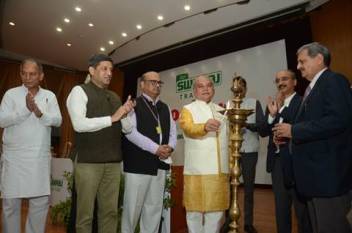DELHI, 19 September 2022: The Indian agricultural industry is gradually introducing more technological advancements. The technological advancements in the agritech sector are creating investment opportunities by raising productivity and efficiency levels.
The Union Minister for Agriculture and Farmer Welfare, Narendra Singh Tomar, spoke at an AgriTech Summit on September 14 in an effort to further improve this industry. The administration is continually working to assist many of the country's small farmers, the Union Minister said in his speech. He discussed the many important activities that are being undertaken in this area to minimise farming challenges and increase farmer earnings. India is currently aiming to outpace every other nation on the planet in the agriculture sector.
The Minister stated during his speech that 10,000 new FPOs are now being created, with a budget of INR 6,865 crore. He claimed that the 86 percent of small farmers in the nation who are unable to make significant investments are taken into consideration.
Adoption of innovative farming techniques
The government is promoting the use of smart farming methods by implementing technology and innovation in the country's agriculture industry. The India Digital Ecosystem of Agriculture (IDEA), farmers database, Unified Farmers Service Interface (UFSI), and support to the states on the new technologies, soil health, and fertility are all part of the government's Digital Agriculture Mission (DAM).
The National e-Governance Plan in Agriculture (NeGPA) programme offers state governments funding for digital agriculture initiatives that make use of cutting-edge technology, such as artificial intelligence and machine learning, the Internet of Things (IoT), blockchain, etc. The utilisation of information and communication technology, particularly drone technologies that are being implemented nationally, is intended to accomplish rapid development in India.
Encouraging the usage of kisan drones
According to a press statement from the government that was released on May 22nd, farmers, women, and SC-ST individuals, as well as small and marginal business owners in the northeastern states, are eligible for a subsidy of INR 5 lakh to purchase Kisan Drones.
This year mid-State Agricultural Universities, Krishi Vigyan Kendras, February, Prime Minister Narendra Modi launched 100 drones called Kisan to spray pesticides on crops as part of a special programme to help farmers.
Additionally, the government is supporting the use of "Kisan Drones" for nutrient and pesticide spraying, digitising land records, and crop evaluation. Funding for these initiatives has been included in the budget.
Together, the State Agricultural Universities, Krishi Vigyan Kendras, and the Indian Council of Agriculture Research (ICAR) have created more than 100 mobile apps, which have been posted on the ICAR website. These smartphone apps, which were created in the fields of crops, horticulture, veterinary medicine, dairy, poultry, fisheries, and integrated themes, provide farmers with useful information such as market prices for different commodities, weather-related data, advisory services, etc. These apps help farmers learn more about the markets where they can sell their produce, as well as about market demand and pricing.
In response to a question about technology in the agricultural sector, the Union Minister stated that the government is working on the Digital Agri Mission to enable farmers to contact the government and for the administration to reach all farmers.
In order to make the benefits of the programme more accessible to farmers by connecting them to this mechanisation, the government aims to establish a consistent platform that will bring together all farmers, agricultural areas, government programmes, central and state governments, and banks. So, as technology and openness in agriculture grow, both the industry and the nation as a whole will profit.

